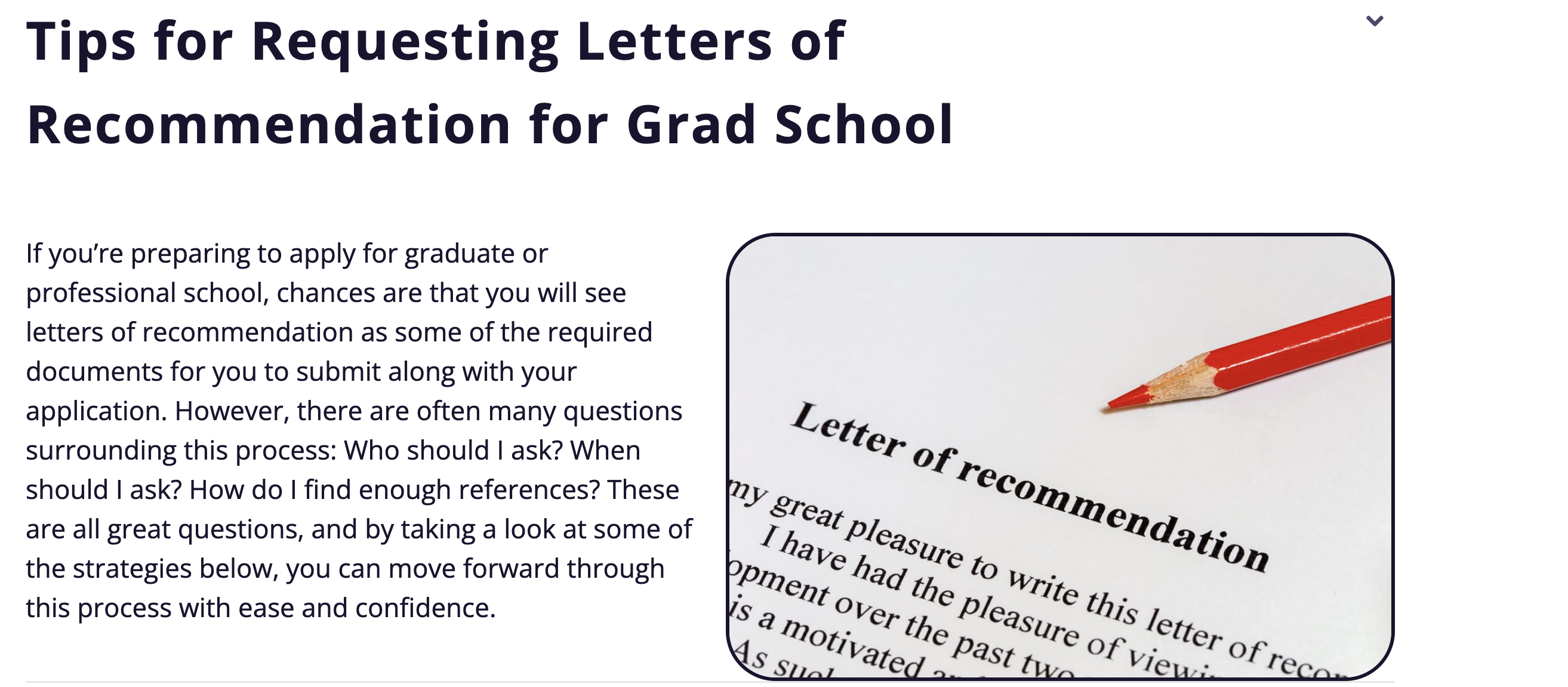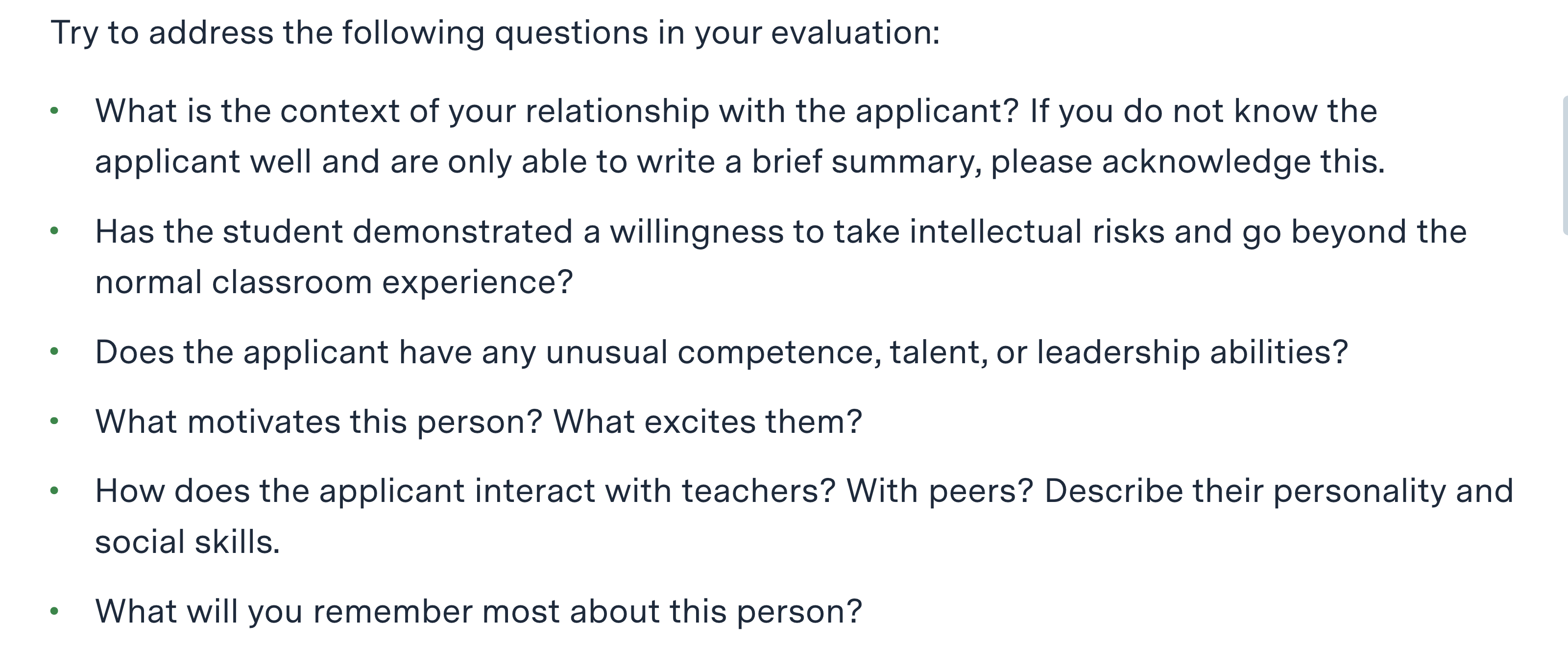How to Secure Strong College Recommendation Letters
Sep 08, 2025Your have worked hard to build a competitive application: strong grades, solid test scores, extracurricular leadership, and compelling essays. Yet admissions officers want one more thing, to hear from the adults who know you best.
Letters of recommendation (LORs) give colleges a unique window into your character, work ethic, and potential beyond the numbers. Because of their importance, the way you approach the process matters. Below is a step-by-step guide, with scripts and samples, to ensure the best possible outcome.
How to Ask for a Letter of Recommendation
Logistics: In-Person First
The strongest way to request a recommendation is in person. This shows maturity and respect, and it gives the teacher a chance to respond thoughtfully. If logistics prevent an in-person ask, a professional email can work.
Sample Email to Request an In-Person Meeting:
Dear [Teacher’s Name],
I hope all is well with you. I’m applying to college this upcoming year and was hoping you could share your guidance on the process. Would you be open to meeting so I could ask for your support with a recommendation? Please let me know some times that work well for you — I’ll be happy to adjust to your schedule.
Thank you for your time and consideration.
Best,
[Your First and Last Name]
If Email is the Only Option
Sometimes in-person isn’t possible (for example, if you have a recommender from summer programs or is already in college courses). In those cases, the email request should be clear, respectful, professional, and it should be hinting about the progress you have made in the class. Share any memories, short anecdotes, quotes from the teacher, anything you can make them relate and remember you better. The more personal your letter to the teacher the better they will be able to articulate your positive qualities on the LOR.

Sample Direct Email for a Recommendation Letter Request:
Dear [Teacher’s Name],
I hope this message finds you well. I am applying to college this year and am wondering whether you’d feel comfortable writing me a strong letter of recommendation. I have greatly appreciated your [mention something specific: “feedback on my writing in AP English,” or “encouragement in physics class”] and believe your perspective would give colleges valuable insight into who I am as a student.
If you’re willing, I will provide supporting materials, including:
– A list of my grades/transcript
– My CV/resume
– A draft of my college listThank you so much for your time and support.
Best regards,
[Your First and Last Name]
Ensuring Quality: Why “Strong” Matters
Not every adult will be the right recommender. If a teacher hesitates or seems uncertain, you should thank them and ask someone else. A weak or generic letter can hurt admissions chances more than no letter at all.
I encourage you to use this phrasing:
-
“Would you feel comfortable writing me a strong letter of recommendation?”
That one word “strong” is critical. It gives the teacher permission to decline gracefully if they don’t feel they can write positively.
Providing Materials: Make It Easy for the Recommender
Teachers often write dozens of letters each year. To help them write a detailed, personalized letter, your child should offer a “brag sheet” and supporting documents. These may include:
-
A final or advanced draft of the personal statement
-
A transcript or grade list
-
A CV or resume highlighting activities and achievements
-
Any specific school instructions or submission portals
Even if the teacher doesn’t use them, the offer demonstrates preparation and professionalism.
Should Your Child Waive Their Right to View LORs?
When completing the Common App or other applications, you will be asked whether you want to waive your right to view recommendation letters. You should always waive this right.
Why? Admissions officers assume that letters are more candid and honest if the student cannot read them. If you do not waive, colleges may discount the letter’s credibility.
Following Up on Letters of Recommendation
Before the Deadline
If a month has passed since the request and the recommender hasn’t confirmed submission, it’s appropriate to send a reminder — especially as deadlines approach.
Sample Follow-Up Reminder Email:
Dear [Teacher’s Name],
I hope you’re doing well. As I prepare to submit my applications [insert date], I just wanted to check in about the recommendation letter. Please let me know if you need any additional information from me.
Thank you so much again for your support, I deeply appreciate it.
Best,
[Your First and Last Name]
After College Decisions
Once admissions results are in, you should thank the recommenders and share where you've chosen to attend. A hand-written thank you note is ideal; it shows maturity and gratitude.
Sample Thank You Note:
Dear [Teacher’s Name],
Thank you again for supporting me through the college application process with your recommendation letter. I’m thrilled to share that I was accepted to [school name] and will be attending this fall.
I feel fortunate to have had your mentorship and guidance throughout high school. Your encouragement has made a real difference in my journey.
With gratitude,
[Your First and Last Name]
NOTE TO TEACHERS
Final Thoughts for Parents
Letters of recommendation are the only part of the application that you cannot control directly once requested. But with preparation, thoughtful selection of recommenders, and respectful communication, you can ensure that these letters strengthen, rather than weaken, their admissions profile.
If you’d like more personalized strategies for maximizing every part of your child’s application, including LORs, feel free to get in touch. voiced.academy@gmail.com
NOTE IF YOU ARE PREPARING TO APPLY TO GRAD SCHOOL

For more information and guidance can be found on my YouTube channel https://youtu.be/nkVQ8WqKLUE?si=gcpOZf10drk3qUJY
Stay connected with news and updates!
Join our mailing list to receive the latest news and updates from our team.
Don't worry, your information will not be shared.
We hate SPAM. We will never sell your information, for any reason.



